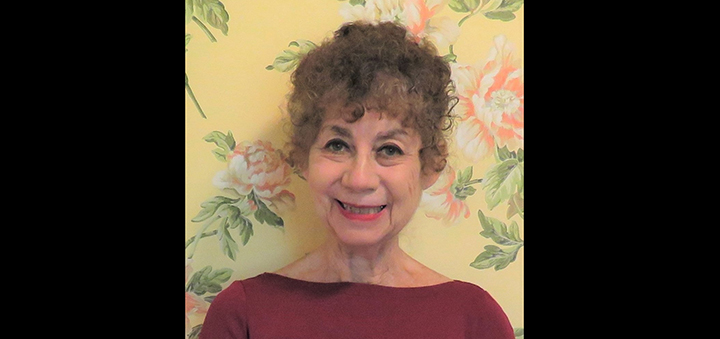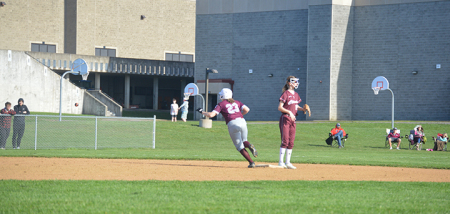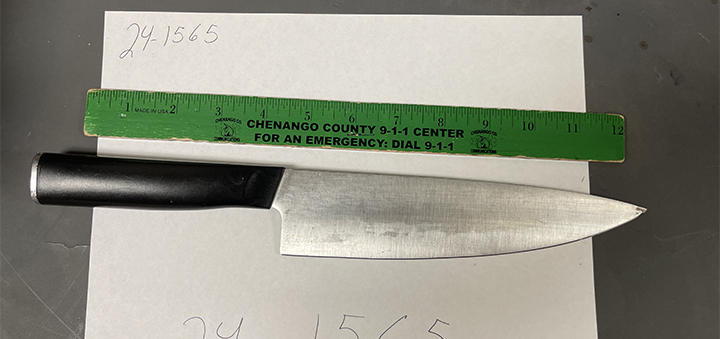Parking Space: A Love Story!
Published:
December 18th, 2020
By:
Shelly Reuben

Shelly Reuben’s new novel is about … well, we’ll let you find out for yourself as we weekly serialize the chapters. If you miss one, get back up to speed with our article archive. Now, welcome to:
Parking Space: A Love Story!
By Shelly Reuben
Chapter 3 - A Meeting of the Minds
Burgess “Mouse” Meekly lived at 1582 Chestnut Avenue, Apartment 302, on the same floor and across the hall from the studio apartment that Lilly Snow was about to occupy.
Burgess was his given name.
Until age twelve, his voice was a twangy squeak, exactly like one of Walt Disney’s mice in the movie Cinderella, so his parents, siblings, aunts, uncles, cousins, teachers, and friends called him “Mouse.”
But at age twelve, puberty struck Burgess like a gong, and literally overnight his voice became a deep and beautiful basso profundo.
Family and friends, however, continued to call him “Mouse.”
He actually liked it.
Initially, because he knew that he sounded like a mouse. Later, because he was blessed (or cursed) with a slight body, penetrating round black eyes, a protuberant nose (Cyrano de Bergerac à la rodent), narrow lips, a thin pointy chin, and cartoon character ears. Which – ears, that is – for a select group of favored friends, he could and would wiggle.
Not long after Burgess’s voice changed, he realized that his new and improved vocal cords had a value greater than singing in the shower. He could imitate teachers, foghorns, bells, buzzers, sirens, and telephone rings. He could copy the tone and inflection of every radio performer (he was an avid listener to the Old Time Classic channel on his parents’ satellite radio) from the 1930s, 40s, and 50s, including The Shadow, Johnny Dollar, Jack Benny, Joe Friday on Dragnet, Phil Harris, the entire cast of Our Miss Brooks, and The Green Hornet. He could duplicate the voices of any and all contemporary actors and singers, too, but he generally chose not to, because (he said) their voices were so nondescript that to imitate them was about as hard as coughing up phlegm. And he could throw his voice, so that he seemed to be talking from the opposite side of a room.
Burgess also sang.
Like Caruso. Like Fats Domino. Like Maria Callas. Like Alvin and the Chipmunks.
When he was a junior in high school, Burgess “Mouse” Meekly made detailed plans for the future, to which he adhered like a burr on a wool coat: he would get his diploma. He would live with his parents and work two or three jobs to save money. He would create a demo tape. He would move to The Big City.
Two years after graduating from high school, Burgess purchased a used Jeep, kissed his mother and father goodbye, drove east, and rented an apartment on Chestnut Avenue. Four days after his twentieth birthday, he got his first voice job at Verbal Expressions Sound Studios, which occupied a converted piano factory near the Triangle Bridge.
Initially, Burgess worked per diem as a background singer for radio and television commercials. But as studio management came to appreciate his vocal cords and dramatic range –he was often compared to Mel Blanc, the “Man of a Thousand Voices” – they brought him on full-time.
Burgess worked from 9:00 a.m. to 5:00 p.m. on Mondays through Fridays.
He drove his car to the sound studios because Verbal Expressions had free employee parking and because going by subway would have taken twice as long.
He also drove to work because he was afraid not to.
Every weekday morning, at exactly 7:45 a.m. – fifteen minutes before he actually had to leave for work – Burgess pulled his car out of the parking space in front of 1582 Chestnut Avenue and Hector Van Hoof, who lived diagonally down the hall in apartment 304, pulled in. Hector thought of the space in front of their building as his parking space, and he considered Burgess Meekly (Hector never called him “Mouse”) to be something in the nature of a valet whose job it was to keep the space occupied when he (Hector) was not using it.
Hector was of average height with an average build, a shaved head, and contemptuously arched eyebrows. He was not tautly muscled like a martial arts expert, he was not bulked up like a weight lifter, and he was not particularly agile. His most outstanding feature, which manifested itself when he glared angrily over the rims of his rimless eyeglasses, was a supercilious smirk.
Hector Van Hooft was a master chef.
Giving orders was his life work. He could do so with flaring nostrils, narrowed eyes, and the suggestion that somewhere nearby he had access to a cattle prod and would use it if provoked.
Hector had graduated with distinction from the Institute of Euro-American Cuisine in Manhattan, and after a series of sous-chef engagements up and down the East Coast, he had settled in The Big City. There, he became the night service Executive Chef at the five star Wedgewood Restaurant located in the Houghton House Hotel.
Over the years that Hector lived at 1582 Chestnut Avenue, he had nurtured a relationship with the building’s superintendent, Gonzales Goldberg, in which dollars were exchanged for favors. Some of the “favors” were innocent in nature, such as alerting Hector that the recently-vacated third floor front apartment had been rented to a young man from the Midwest, and that the new tenant was moving in that very day.
Some – about which more later – were not.
Believing in preemptive strikes, Hector crossed the hall, knocked against the frame of the open door to his new neighbor’s apartment, and glared over the rimless rims of his eyeglasses at its occupant.
Prior to his move to The Big City that week, Burgess “Mouse” Meekly had never driven over 200 miles in any direction. He had also never slept in a motel room, parallel parked, given a landlord a month’s rent and month’s security, or had to unlock two doors – one to the lobby and one to his apartment – to get home.
He was excited about his new job, and he was excited about living alone.
He was also scared to death.
At that time, Hector Van Hooft was thirty-six years old and had been an Executive Chef for five of them. He had a staff of twenty, all of whom he easily intimidated, and he was accustomed to being obeyed. He was not, however, thinking of food or food service as he continued to rap his knuckles against the door fame of the apartment diagonally across the hall.
“You are Mr. Meekly?” he said (he could plainly see Burgess standing in the middle of the room, and was annoyed that this newcomer had not responded to his knock.)
Unheeding and unhearing, Mouse stared unhappily into what appeared to be a carton of broken dishes. He was holding a box cutter in one hand and a wad of crumpled newspapers in the other.
“Ahem!” the master chef articulated, and knocked for a third time on the doorframe.
Finally, Hector’s hectoring got through to the new tenant. He looked up and saw a strange man in his doorway. One who seemed to be radiating tidal waves of disapproval. Disconcerted both by the broken crockery and the intrusion, Burgess’s face creased into a mask of dismay.
“Have…I…I do…do…done…anything wrong?” he stammered.
Hector Van Hooft grinned. Or, rather, the tips of his lips spiked upward like roofing nails, and he repeated, “You are Mr. Meekly?”
The accused’s head jerked into a series of staccato nods, which the man in the doorway interpreted as permission to enter. He strode across the room to a window, glared down at the street, and sneered, “Does that decrepit white Jeep in front of this building belong to you?”
Burgess stumbled past the cartons and joined the stranger at the window.
Eight years past puberty, his voice reverted to that of a Walt Disney mouse, and he squeaked, “Yeee…eee…yes, Sir.”
A pulse beat in Hector Van Hooft’s brow. He hissed softly, “Then your vehicle is parked in my space.”
§ § §
If this story can have two beginnings, the first was when Hector strode uninvited into Mouse Meekly’s new apartment and intimidated him into co-habiting a parking space to which neither man had a legal right.
And the second was when Lilly Snow did her little dance in that very same parking space a year later.
Copyright © Shelly Reuben, 2020. Shelly Reuben’s books have been nominated for Edgar, Prometheus, and Falcon awards. For more about her writing, visit www.shellyreuben.com
Author: Shelly Reuben - More From This Author
Comments
(1).jpg)






